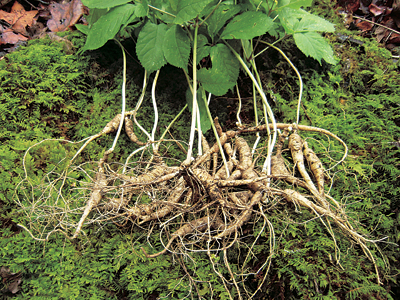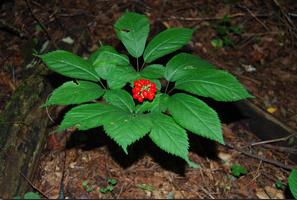- California Assembly OKs highest minimum wage in nation
- S. Korea unveils first graphic cigarette warnings
- US joins with South Korea, Japan in bid to deter North Korea
- LPGA golfer Chun In-gee finally back in action
- S. Korea won’t be top seed in final World Cup qualification round
- US men’s soccer misses 2nd straight Olympics
- US back on track in qualifying with 4-0 win over Guatemala
- High-intensity workout injuries spawn cottage industry
- CDC expands range of Zika mosquitoes into parts of Northeast
- Who knew? ‘The Walking Dead’ is helping families connect
US officials crack down on illegal ginseng harvesters
Wild ginseng, coveted for centuries as an ailment miracle curer in Asia, has become Appalachian gold and a source of headache for local law enforcement officials.
Known as “sansam” in Korea, the root grows naturally from Canada to southern Appalachia.
A recent rush for ginseng — which ABC News says can retail for up to $1,000 for an ounce in Asia — has led to illegal harvesting in national parks.
According to U.S. Fish and Wildlife Service, strict rules on harvesting wild ginseng exist in the 19 states that allow it — in Illinois, harvested roots must have at least four leaves to ensure it is at least 10 years old; in the 18 others, there must be at least three leaves.
West Virginia Division of Natural Resources Lt. Marshall Richards told ABC more than 400 pounds of ginseng, valued at about $5 million, have been confiscated by region officials.
“If things keep going at the rate they’re going, within 10, 15 years we won’t have any ginseng left,” Richards said.










![블랙핑크 로제(좌)와 제니(우) [로제 인스타그램·OA엔터테인먼트 제공. 재판매 및 DB 금지]](http://www.koreatimesus.com/wp-content/uploads/2025/04/AEN20250423001000315_02_i_P4-copy-199x223.jpg)






